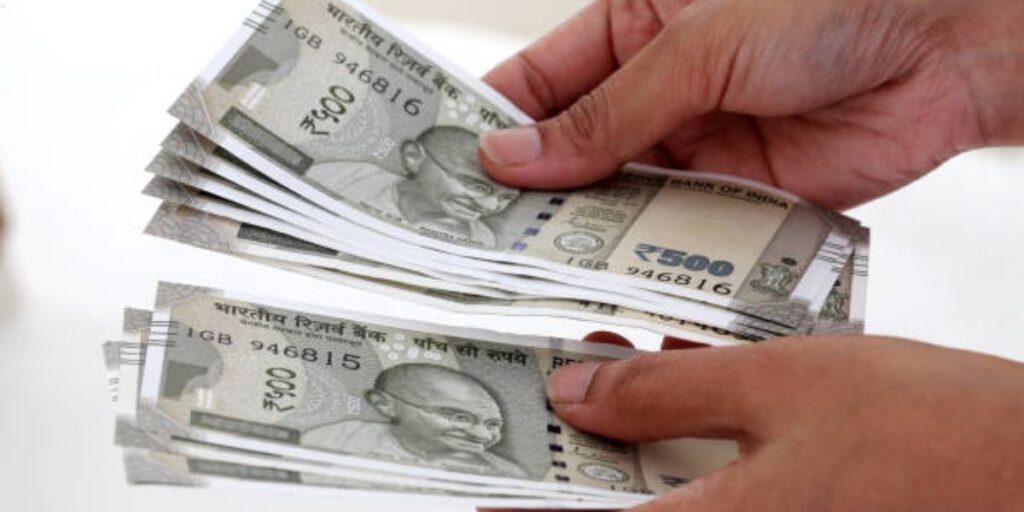How Much Cash Can Be Deposited in a Bank : Depositing cash in a bank is a common practice for many people, but there are regulations and guidelines to be aware of. Understanding these rules can help you manage your finances effectively and avoid any potential issues with your bank or tax authorities.

General Guidelines for Cash Deposits
Most banks do not set a specific limit on the amount of cash you can deposit at once. However, there are important considerations and regulations that come into play when making large deposits.
Reporting Requirements
In the United States, banks are required to report any cash deposits over $10,000 to the Internal Revenue Service (IRS). This is part of the Bank Secrecy Act (BSA) aimed at preventing money laundering and other illegal activities. When you deposit more than $10,000 in cash, the bank will fill out a Currency Transaction Report (CTR) to notify the IRS.
Structuring Deposits

It’s important to avoid “structuring” deposits, which is the practice of breaking down large amounts of cash into smaller deposits to evade reporting requirements. This is illegal and can result in severe penalties. Banks are trained to recognize suspicious patterns of deposits that might indicate structuring.
Frequent Smaller Deposits
While there’s no specific limit on how many smaller deposits you can make, frequent smaller deposits totaling more than $10,000 in a short period can still trigger scrutiny. Banks are required to file a Suspicious Activity Report (SAR) if they suspect that deposits are being structured to avoid reporting thresholds.
Bank Policies

Each bank may have its own policies regarding large cash deposits. Some banks might ask for identification or additional information if you are making a large deposit. It’s a good idea to check with your bank to understand their specific requirements and procedures.
Practices for Large Cash Deposits
1.Notify the Bank: If you plan to deposit a large amount of cash, it’s wise to notify your bank in advance. This can help streamline the process and avoid any unnecessary delays or questions.
2.Provide Documentation: Be prepared to provide documentation or an explanation for large cash deposits. This could include information about where the money came from, such as sales receipts, invoices, or other relevant documents.
3.Be Honest: Always be truthful and transparent about the source of your cash. Misleading the bank can lead to legal issues and damage your relationship with your financial institution.
4.Consider Alternatives: If you regularly handle large amounts of cash, consider alternative ways to manage your money. Using checks, wire transfers, or other electronic payment methods can reduce the need to deposit large sums of cash.
International Considerations
Different countries have different regulations regarding cash deposits. For example, in the European Union, banks also have stringent anti-money laundering (AML) regulations that require the reporting of large cash transactions. Always check the local laws and bank policies if you are dealing with large cash deposits in a foreign country.
Europe and the European Union (EU)

In the European Union, banks and financial institutions are governed by strict anti-money laundering (AML) regulations. Under the EU’s Fifth Anti-Money Laundering Directive (5AMLD), any cash transaction exceeding €10,000 (whether a deposit or withdrawal) must be reported to the appropriate authorities. This threshold applies whether the transaction is made in one large sum or in several smaller installments that add up to over €10,000.
Much like the United States, structuring deposits to avoid these reporting requirements is illegal. Financial institutions are required to file suspicious activity reports (SARs) if they believe that transactions are being structured to evade detection. SARs are also required for any unusual transactions that don’t align with a customer’s normal financial behavior.
Additionally, EU regulations require that banks verify the identity of anyone making a large cash deposit. If the source of the cash is unclear or if the transaction appears suspicious, the bank may request further documentation, such as proof of income or the purpose of the deposit. If the bank is not satisfied with the information provided, they may refuse the deposit or report the transaction to government authorities.
United Kingdom

The UK follows a similar framework to the EU when it comes to large cash deposits, as it was once part of the Union and still adheres to many of the same AML laws. Under the UK’s Money Laundering Regulations 2017, financial institutions must report any cash transaction over £10,000, as well as any suspicious activity related to smaller deposits.
As in other countries, banks in the UK are vigilant about structuring and other suspicious behavior. If you make several smaller cash deposits that total more than £10,000 within a short period, you could trigger a suspicious activity report.
Goto : Homepage
